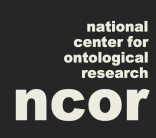Science is a collaborative effort, and the progress of science depends importantly upon sharing research and its results. However, the proliferation of scientific research makes it progressively difficult to locate and to coordinate research between different laboratories working in different institutions and in different countries. Formal ontology helps to coordinate research by providing a common vocabulary that can facilitate the comparison and evaluation of data. Published research can then be annotated with this controlled vocabulary to facilitate data discovery between research groups.
Yet ontology provides more than just a classification system. The demand to provide clear and consistent definitions within an ontology, as well as the ability to make explicit the relations between various entities within an ontology, help to clarify the results of research in order to reduce conceptual confusions. Research that can be clarified in this way constitutes better research.
Once the results of research has been clarified and codified according to the principles of formal ontology, that research is usable not only by human researchers, but also by machines. While the promise of machine-reasoning applied to scientific research may still be in the future, the foundations of this possibility are being laid by ontology work that realizes benefits for researchers right now.
For these reasons, grant-conferring agencies are increasingly demanding that ontology effort should be part of research projects that receive funding.
To start exploring the use of formal ontology in research, see the following:
Training in ontology development
